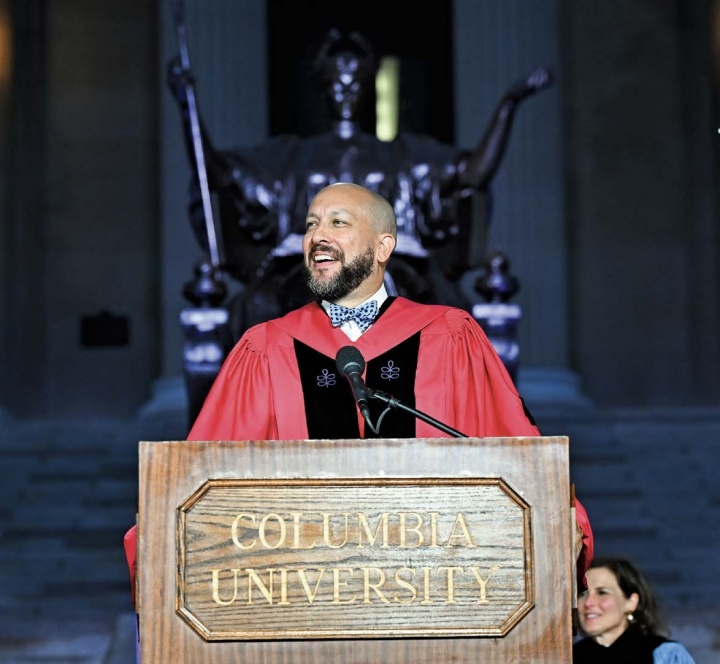Columbia College | Columbia University in the City of New York
“Recognize That Your Presence Matters”

DIANE BONDAREFF
As students step into the life of this school, and this community, they encounter far more opportunities for academic exploration and social connection than they could possibly pursue. But none speaks to the fundamental nature of Columbia College’s mission more directly than the Core Curriculum and the ambitions that it harbors. In these classrooms you will be asked to wrestle with questions that often have no simple or final answer, and to engage with people whose perspectives may be vastly different from your own.
Questions about justice and freedom, beauty and belonging, truth and power. Questions that stretch across cultures, time and geography, and ones that must be considered anew by every generation. Questions that, if we do our work right, become better and more clear in the asking, even as each of us becomes better at asking the right questions.
If not final answers, in time you will develop expertise and deep stores of knowledge in your chosen majors and minors in the arts and sciences — but these pursuits will only be deepened and enriched by the habits of mind cultivated in the Core.
Perhaps most importantly, the Core is something that you cannot and will not undertake alone. It will demand patience and grace, and its promise lies in the fact that you will read, think and search together. Sometimes you will disagree passionately with the ideas you encounter. Sometimes you will disagree with your peers, and your professors. And you absolutely should! Because the real work of the Core lies in returning to the table, again and again, with respect, curiosity and persistence.
Learning to live, think and question in community is not limited to what happens in a seminar, lecture or lab. Our mission is to equip you with the tools for both meaningful personal achievement, as well as a life of impactful civic engagement. We believe academic excellence and social and emotional well-being go hand in hand. And that each of you, and all of us, should understand ourselves as stewards of the collective — that we cultivate the skills and practices necessary to sustain the hard work summed up by the word “community.” All of these are commitments that we hope our students carry with them into their lives as alumni.
Put another way, it is about cultivating the capacity to hold your independence in tension with our interdependence — to see that the “I” is always shaped in relation to the “we.” And that the terms of this dynamic are not always even, equal or ideal. Community is not a given or a fact. The term can ring hollow, and it is nothing without hard work.
This is the challenge of pursuing common purpose with people whose experiences and perspectives may be worlds apart from, and can feel at odds with, your own. To my mind, this is what the Core aspires toward — a mode of learning together that aims to be as socially inclusive as it is intellectually expansive. A set of ideas and practices that binds every member of this community together — faculty, staff, students and alumni.
The faculty, staff and alumni here are committed to walking with you and supporting your well-being and aspirations every step of the way. The peers sitting with you tonight will be your companions, collaborators and sometimes challengers on this journey. And the habits of mind you cultivate — patience, grace, openness to difference — are precisely the tools you will need to meet the world’s complexity, and to change it for the better.
So, as you begin this new chapter: Stay curious, stay patient with yourself and others, and recognize that your presence matters — not just for yourself, but for all of us, and for this place.
It is my great privilege, as dean, to welcome each of you as we partner in the shared work of learning and living together.

Josef Sorett
Dean of Columbia College and the Henry L. and Lucy G. Moses Professor; Vice President for Undergraduate Education; Professor of Religion and African American & African Diaspora Studies
Issue Contents
Published three times a year by Columbia College for alumni, students, faculty, parents and friends.
Columbia Alumni Center
622 W. 113th St., MC 4530, 6th Fl.
New York, NY 10025
212-851-7852
cct@columbia.edu
Columbia Alumni Center
622 W. 113th St., MC 4530, 4th Fl.
New York, NY 10025
212-851-7488
ccalumni@columbia.edu

